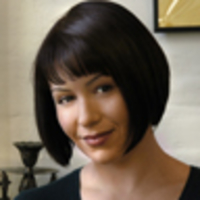The Mississippi governor’s comments about Citizen Councils, a group whose actions were just as repressive as the Klan's, ignore their impact on African Americans. Michelle Goldberg on the potential 2012 candidate’s dangerous game. Plus, Harold Evans on the reality of Mississippi's Klan in a white collar.
Haley Barbour, the governor of Mississippi, chairman of the Republican Governors Association, and likely presidential candidate, has fond memories of his native Yazoo County during the days of Jim Crow. “I just don’t remember it as being that bad,” he says in a Weekly Standard piece this week. He praises the Citizens Councils—“an organization of town leaders”—for keeping the peace and keeping out the KKK. Writer Andrew Ferguson takes Barbour at his word, arguing that if Barbour’s segregationist roots become an issue in his presidential campaign, it will be because of “Washington political reporters who enjoy moralizing about race and public education while sending their own children to progressive schools like Sidwell Friends and St. Albans.”

The piece is an exquisite example of the conservative racial two-step: a blatant expression of racism, followed by aggrieved wailing at the mere thought of being called a racist. It proves that Barbour is either dishonest or so blindly ignorant that one can scarcely imagine how he’s managed a successful political career.
It’s not surprising that Barbour didn’t find segregation “that bad,” since he supported segregation. But for African Americans, who significantly outnumbered whites in Yazoo County, it was, obviously, very bad indeed. At the beginning of the century, Yazoo was a violent enough place to earn prominent mentions in almost every history of lynching, with 19 men dying at the hands of white mobs before 1930. Anti-black violence continued through the 1950s, when Barbour was growing up. In 1957, for example, a white farmer murdered a black soldier for the crime of sitting at a table with the farmer’s sister.
Barbour reports that when Martin Luther King spoke at the Yazoo County fairground in 1962, blacks and whites alike went to see him, though Barbour remained in his car on the rally’s outskirts, which suggests that he was there for reasons other than solidarity. No reporter was present to capture this moment of interracial comity, unique in the history of the South. But journalists were there when King spoke in Yazoo in 1966 during a freedom march, pleading for nonviolence while “[n]egroes and whites exchanged gunfire in a town 75 miles away,” as one dispatch says. About 100 whites stood, staring, on the gathering’s periphery, but the report makes it pretty clear they weren’t there to lend their support.
The Weekly Standard piece proves that Barbour is either dishonest or so blindly ignorant that one can scarcely imagine how he’s managed a successful political career.
• Harold Evans: Haley Barbour Needs a History LessonIt’s true that in Yazoo, the local Citizens Council stood against the Klan—because it was worried about the competition. Citizens Councils were white supremacist organizations that were formed in the 1950s to defend segregation. They tended to be more upscale and respectable than the Klan, but they didn’t disagree with Klan racism. In his book Local People: The Struggle for Civil Rights in Mississippi, John Dittmer wrote, “The Yazoo City chapter of the Citizens Council went on record opposing the Klan, adding that ‘your Citizens Council was formed to preserve the separation of the races, and believes that it can best serve the county where it is the only organization operating in this field.”
Rather than resorting to terrorism, the “town leaders” of the Citizens Councils used more genteel methods to punish African Americans who dared demand civil rights. When black parents in Yazoo filed petitions to desegregate county schools, the Citizens Council took out a full-page newspaper add with their names and addresses. The same information, Dittmer writes, was posted on placards in every store in town. All the signatories with white employers lost their jobs. The self-employed were subject to punishing boycotts: One grocer, for example, left the state after distributors destroyed his business by refusing to sell to him.
Could Barbour really not know this history? If so, he has awfully bad memory, since he’s been through a similar controversy before. In 2003, Barbour’s photograph appeared on the website of the Council for Conservative Citizens, the Citizens Councils' successor organization, alongside articles like “In defense of racism.” The picture was taken at one of the group’s fundraising barbeques. There was a media uproar, and while Barbour denied knowledge of CCC’s racist activities, he also refused ask for the removal of his photo.
It seems unlikely that someone as smart as Barbour would keep repeating the same mistake. This is a man, according to a January Newsweek article, who keeps a Confederate flag signed by Jefferson Davis on his office wall. Defense of that flag helped him win the Mississippi governorship in 2003. Now he’s gunning to take on America’s first black president, and with his Citizens Councils shout-out, he’s sending a message that he hopes will resonate with the Republican primary electorate.
The interesting thing about the Weekly Standard piece, then, isn’t the revelation of Barbour’s racism. It’s that Barbour, a man with a deep knowledge of Republican politics, believes that his party’s base sees race the same way he does.
Michelle Goldberg is a journalist based in New York. She is the author of The New York Times bestseller Kingdom Coming: The Rise of Christian Nationalism and The Means of Reproduction: Sex, Power and the Future of the World, winner of the 2008 J. Anthony Lukas Work-in-Progress Award and the Ernesta Drinker Ballard Book Prize. Goldberg's work has appeared in Glamour, Rolling Stone, The Nation, New York magazine, The Guardian (UK) and The New Republic. Her third book, about the world-traveling adventuress, actress and yoga evangelist Indra Devi, will be published by Knopf in 2012.






